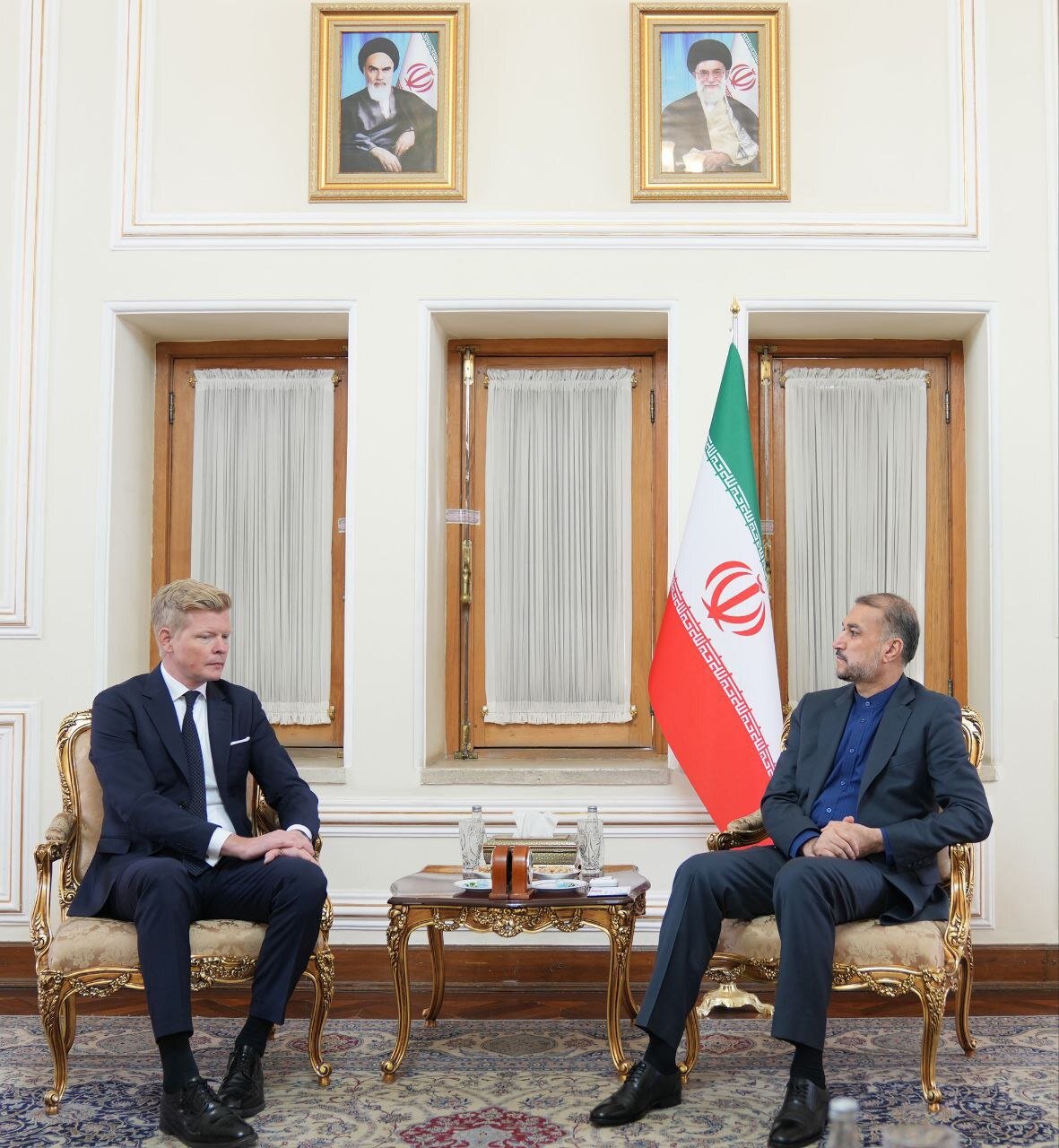UN envoy in Iran to discuss peace in Yemen

TEHRAN – The United Nations' Special Envoy for Yemen, Hans Grundberg, has arrived in Tehran to discuss the ongoing developments in the war-stricken Arab country.
As reported by Iranian media, Grundberg engaged in discussions with Hossein Amir Abdollahian, Iran's Minister of Foreign Affairs.
The talks between Grundberg and Amir Abdollahian centered around the latest developments in the region, placing a special focus on the situation in Yemen.
Amir Abdollahian emphasized the Iranian Foreign Ministry's concern over the military actions conducted by the United States, specifically the military assaults by the U.S. and the UK on Yemen. He noted that the re-designation of Ansarullah as a terrorist organization in the U.S. has added complexity to the situation, hindering potential political solutions.
The top Iranian diplomat also criticized recent U.S. aggressions in Syria and Iraq, attributing them to the consistently flawed and unsuccessful approach of the country in resolving issues through violence and military attacks.
Referring to Iran's ongoing support for achieving peace and sustainable security in Yemen, Amir Abdollahian highlighted the broader benefits of efforts directed towards stability and security throughout the region for all countries in the area. He stressed the imperative need for a political resolution.
At the onset of the meeting, the UN Special Representative extended his condolences once again to Amir Abdollahian and the families of the martyrs of the terrorist incident in the southeastern city of Kerman.
Grundberg expressed appreciation for the Islamic Republic of Iran's commitment to stability and security in the region, particularly in Yemen. He presented a report on the UN initiative aimed at establishing peace and tranquility in Yemen, with a focus on reducing tensions within the country. Grundberg emphasized the necessity of addressing the root causes of regional crises.
The Special Envoy for Yemen from the United Nations had also visited Iran and met with Amir Abdollahian in November of last year. They discussed the crucial need for progress in reaching an agreement on measures to enhance living conditions in Yemen, establish a sustainable nationwide ceasefire, and resume an inclusive political process under UN auspices.
Since March 2015, Yemen has faced attacks from Saudi Arabia and its allies. In recent months, there has been a decrease in hostilities as peace negotiations are underway.
Iran has consistently advocated for a halt to hostilities and the pursuit of a political solution to resolve the political disputes in Yemen.
The West, however, has increased pressure on Yemen after the country declared its full support for Palestinians following Israel’s devastating war launched on the enclave on October 7. Israel’s unrelenting onslaughts have so far killed over 27,000 people, mostly women, and children. As part of their support for Palestinians, Yemen's armed forces have been targeting several ships owned by Israel or bound for ports in the occupied territories, in the strategic Red Sea.
Yemen says the measure is meant to help bring a halt to the Israeli genocidal war on Gaza. However, the U.S. and its allies have portrayed Yemen’s attack as a threat to international peace, launching airstrikes on Yemeni military forces.
Leave a Comment